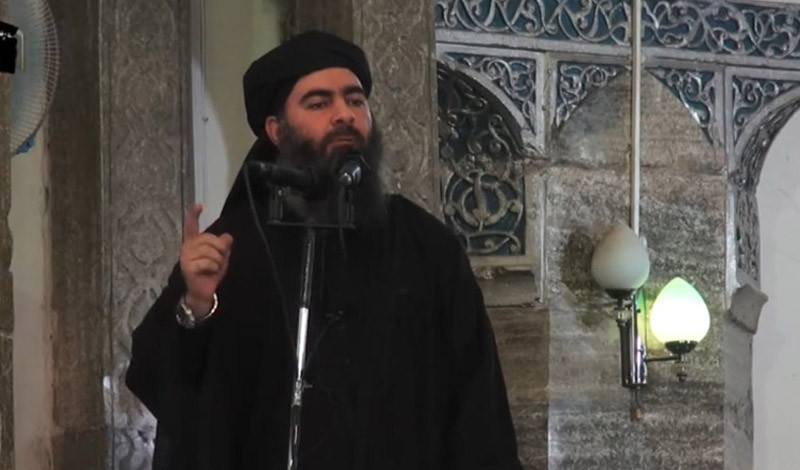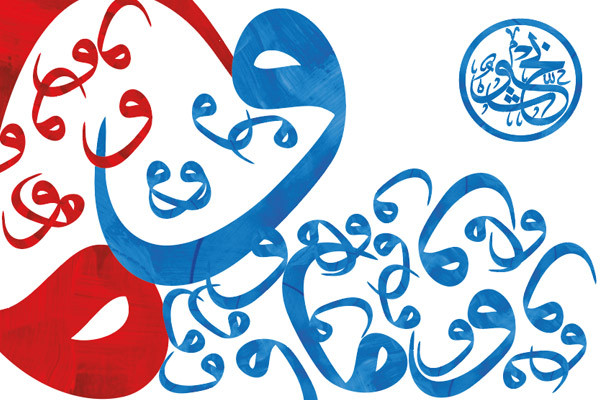The making of an enemy
About 25 years ago, and in the first few weeks after the collapse of the former Soviet Union in December 1991, a vital question came to the fore: Who is the new enemy of the West? There was no clear answer, but in the weeks following that historical event, former Israeli president Shimon Peres said in a brief but specific statement that Islam is the new enemy of the West because it has the same totalitarian nature as Communism

- by Mohamed Ahmed Yusf Al Obaidly ,
- Tuesday, 30th June, 2015
In 1991, almost three years had passed since the formation of Al Qaida, at the peak of the Afghan jihad against the USSR and just a few months before the withdrawal of Soviet troops from Afghanistan in 1989. But the subsequent years of the 1990s witnessed the emergence of Al Qaida at a global level. It signalled its presence through a series of operations and bombings in many countries, starting with the bombing of the Movenpick hotel in Aden (south Yemen) in 1992. This was the first attack by the organisation and later there were some attacks on American troops in Somalia (1992-1993) and in Marrakesh and Istanbul (1994). Al Qaida then bombed the American embassies in Nairobi, Kenya and Dar-es-Salam, Tanzania in 1998 and the American warship USS Cole in the port of Aden in 2000. Al Qaida was in the first phase of globalising its jihad, which later peaked with the attacks of September 11, 2001.
The 9/11 attacks signalled the second stage in the emergence of the new enemy of the West. Those attacks confirmed Al Qaidas position as the primary adversary of the United States and the West. The attacks were the modern equivalent of the air raid by the forces of Imperial Japan against Pearl Harbour in 1941, in terms of results and consequences. Just as the Pearl Harbour attack marked the beginning of the real involvement of America in the Second World War to defeat Nazi Germany and signal US global leadership later, the 9/11 led America to declare a new global war on terrorism.
The second phase began with the war on the Taliban regime in Afghanistan in late 2001 and the invasion of Iraq in 2003. At this point, there was a little change in the behaviour of the US following certain major events.
If US policies towards the terrorists had been interpreted as a reaction to or even revenge for 9/11, they still displayed an excitability of reaction. This was especially seen in acts such as the setting up of the gulag at Guantanamo, and the torture scandal in Abu Ghraib prison in Iraq.
Guantanamo and Abu Ghraib have been a recurring pattern. The world knew came to know about what was going on in Guantanamo through leaks published in US newspapers. The shocking images and the misstreatment of detainees, and all details of torture and indignities, including the desecration of the Qoran, greatly shocked the Arab and Muslim world. It also prompted the US administration to adopt a series of measures to address torture in its prisons, described by Amnesty International as the Barbarity of our age.
Similarly, the Abu Ghraib scandal was leaked in Iraq in 2004 through shocking pictures and details. One thing was clear in both these scandals: There was a prior intention to humiliate and torture and abandon humanity and morality even American values. While none of the Guantanamo officials were blamed, the Abu Ghraib scandal was justified as an isolated act by a few US soldiers and six of them were put on trial. But this does not eliminate the fundamental question: Why does the US military need to indulge in torture, as seen is places like Guantanamo and Abu Ghraib? More importantly, what are the consequences of disclosure of such scandals?
In his investigation about the torture scandal at Abu Ghraib, American journalist Seymour Hersh quoted Bernard Haykel, professor of Middle East studies at New York University, as saying: Such dehumanisation is unacceptable in any culture, but it is especially so in the Arab world ... (Seymour Hersh, Torture at Abu Ghraib, the New Yorker, May 10, 2004).
Extrapolating these scandals in the wider context of US policies in Iraq after the invasion alongside the dissolution of the Iraqi army and the treatment of the population in the Sunni areas and army prisons while combating the insurgency many would conclude that the policies and actions on the ground provided the ideal environment for the emergence of Daesh (the self-proclaimed Islamic State of Iraq and the Levant). But this sounds like a very polite academic evaluation with increasing disclosures about US and British intentional and direct involvement in creating Daesh and strengthening it. One June 3, the Guardian newspaper reported the collapse of the trial of a Briton accused of joining a terrorist organisation after it was proved that British intelligence had armed the same terrorist organization. It added that a joint operation with US intelligence dubbed Rat line transferred weapons from the former Libyan army arsenal to militants in Syria and Iraq. And last month, an investigative report published on the internet revealed that US intelligence reports declassified by order of the court showed clearly the role played by it in strengthening Daesh.
If we read about the emergence of Daesh in the context of finding/making a new enemy, Peress early predictions ring surprisingly true. He is not a wizard or a fortune teller but one who knows very well that superpowers need enemies.
Making an enemy does not mean or require holding a remote control or pressing some buttons; its another way of practising politics: Controlling and influencing events and trends, influencing opponents and even pushing them towards the options and directions you want. Surprisingly, the long route to making a new enemy resulted in a rare kind of enemy: one that everybody wishes for.
The Syrian regime badly needed an enemy like Daesh to grant itself some ethical alibies in its war against Syrians, as Bashar Al Assad branded the first civilian protesters as terrorists.. And once Daesh was in Syria, it proved that it was more interested in waging war against the opposition, especially the Free Syrian Army. The balance of power shifted in favour of the regime. That is why, the story published by Germanys Der Spiegel about Syrian intelligences role in strengthening Daesh is credible for many observers.
And in Iraq, Daesh was a precious gift to Iran. First, to prove that terror primarily is a Sunni industry (as Americas and the global assessment has it) and second, to lead a campaign of combatting extremism and terrorism in Iraq, which many Iranian officials have boasted about a campaign not waged for God but to reap more strategic gains. Some Iranian officials have proudly spoken about the return of Iraq as the capital of the Persian empire. That is what motivated some salafist clerics and activists to accuse Iran of forming Daesh.
As for Israel, Daesh is an enemy badly needed not only to make Arabs plunge into civil and sectarian wars, leading to the division of their countries, but also because it gives Tel Aviv an acceptable alibi to wage war against the Palestinians and gain the international sympathy it lacks. The Israelis are praying for the emergence of Daesh in occupied Palestine. That is why many believe that Israel is deeply involved in the making of this terrorist organisation, with some claiming that Daesh leader Abu Bakr Al Baghdadi was trained by Israels Mossad.
The list of beneficiaries would extend to include many regional players, each with its own goals. But serious questions remain about the real hidden motives of the US and Britain in creating this enemy/monster.

Mohamed Ahmed Yusf Al Obaidly
Consultant, Regional Affairs (former)
Read More
Areas of Expertise
- Regional Affairs
- Public policy
- Geostrategic Affairs
Education
- Studied Economy & Political Sciences -Cairo University
Bio
With his veteran career in journalism, Al-Obaidly has an extensive, firsthand experience in regional and international affairs. He covered the first and second Gulf War, while also covering Palestinian and Sudanese affairs. In the last decade he started to focus on Political Islam movements.
Al-Obaidly is a regular commentator and columnist, frequently published in local Bahraini media and several others regionallly. He also worked as an editor in the Monthly Le Mobdediplomatique (Arabic Edition) from 2008 – 2010.
These backgrounds and expertise formed a solid base to move to the research and studies field.

